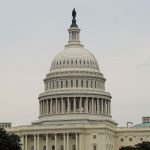In a final legislative approval, the House voted in favor of a congressional resolution aimed at reversing a rule exemption by the Biden administration regarding electric vehicle (EV) chargers and Buy America requirements. Despite being a mostly party-line vote, two Democratic representatives, Jared Golden of Maine and Donald Davis of North Carolina, crossed party lines to support the resolution. Conversely, two Republican representatives, Brian Fitzpatrick of Pennsylvania and Tom McClintock of California, voted against the resolution along with Democrats. Notably, Democratic Senator Kyrsten Sinema of Arizona, who now identifies as an independent, also supported the resolution.
House Joins Senate in Voting to Strike Down Biden's 'Pro-Communist' EV Charger Rule https://t.co/ROxNteZUAR pic.twitter.com/VEroIxnxdN
— Gaby (@gabymixH) January 12, 2024
Republican Representative Elise Stefanik of New York criticized President Biden’s administration waiver as a “gift” to China. She accused the administration of empowering foreign adversaries like China by directing American taxpayer dollars to foreign EV markets rather than supporting American businesses and manufacturers. Stefanik argued that the Buy America provision intends to benefit American companies and promote domestic manufacturing, goals that she believes the current administration is disinterested in pursuing.
The White House, however, has indicated that it plans to veto the resolution if necessary. Politico reported that overriding the veto would require a two-thirds majority in both houses of Congress, a significantly higher threshold than was reached when the resolution passed. The dispute centers on a waiver from Buy America rules for EV chargers funded by the Bipartisan Infrastructure Law. While the Biden administration has contended that expediting the construction of chargers is crucial to increasing EV sales, supporters of the resolution argue that it undermines American businesses by sidestepping domestic investments and potentially benefiting foreign nations.
Republican Senator Marco Rubio of Florida, who authored the resolution, has made a similar argument, stating that if taxpayer money is dedicated to building EV charging stations, it should benefit Americans using American products. Proponents of the waiver maintain that it is necessary for speedy deployment of chargers, facilitating the transition to EVs. Critics of the waiver reject this rationale, asserting that rushing to meet green and climate agendas may inadvertently strengthen China’s control over America’s energy future instead of mitigating environmental damage.
As the debate continues, the outcome of the resolution remains uncertain. However, it serves as another example of the polarizing conflicts between Democrats and Republicans on issues of economic policy, international trade, and energy.




